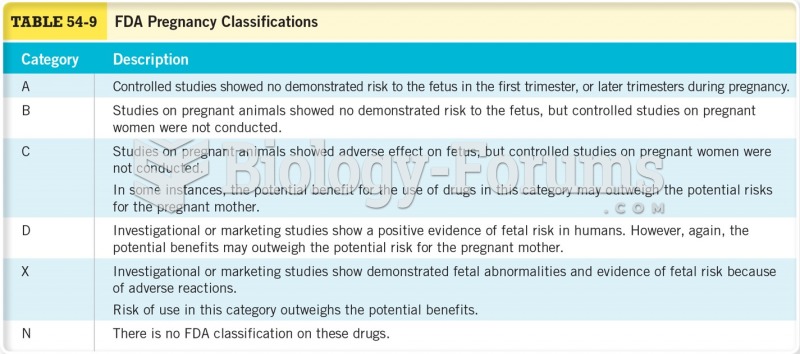|
|
|
In 2012, nearly 24 milliion Americans, aged 12 and older, had abused an illicit drug, according to the National Institute on Drug Abuse (NIDA).
It is important to read food labels and choose foods with low cholesterol and saturated trans fat. You should limit saturated fat to no higher than 6% of daily calories.
Human stomach acid is strong enough to dissolve small pieces of metal such as razor blades or staples.
Only one in 10 cancer deaths is caused by the primary tumor. The vast majority of cancer mortality is caused by cells breaking away from the main tumor and metastasizing to other parts of the body, such as the brain, bones, or liver.
In the United States, there is a birth every 8 seconds, according to the U.S. Census Bureau's Population Clock.
 Cushing’s syndrome. A photograph of a woman with the characteristic facial features of Cushing’s syn
Cushing’s syndrome. A photograph of a woman with the characteristic facial features of Cushing’s syn
 Patients should be encouraged to bring to their health care visit all the substances that they take,
Patients should be encouraged to bring to their health care visit all the substances that they take,





